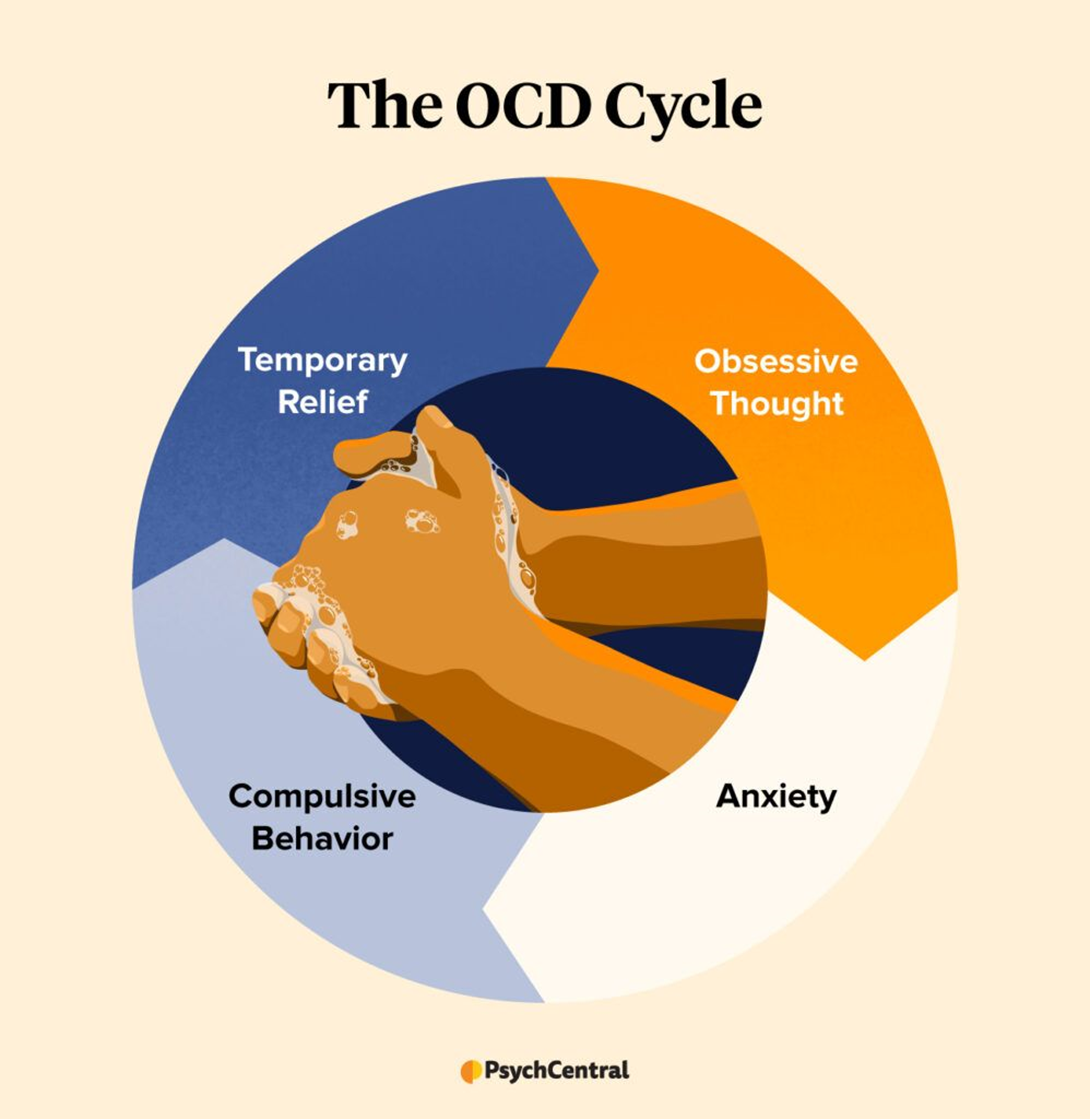A home-health nurse is assessing a client who has obsessive-compulsive disorder (OCD) and observes that the client engages in constant repetitive cleaning. The nurse knows that this behavior is an attempt to accomplish which of the following?
Prevent aggressive and impulsive behaviors.
Manipulate others.
Decrease the time available for interaction with people.
Decrease anxiety.
The Correct Answer is D
Choice A reason: OCD behaviors are not typically aimed at preventing aggressive and impulsive behaviors but are a response to anxiety-provoking obsessions.
Choice B reason: The repetitive behaviors associated with OCD, such as cleaning, are not intended to manipulate others but are compulsions that the individual feels driven to perform.
Choice C reason: The goal of repetitive cleaning in OCD is not to decrease social interaction time but to alleviate the distress caused by obsessive thoughts, often related to cleanliness or contamination.
Choice D reason: Repetitive cleaning in OCD is a compulsion that aims to decrease the anxiety caused by obsessive thoughts. It is a way for the individual to manage their anxiety and gain a sense of control over their environment.

Nursing Test Bank
Naxlex Comprehensive Predictor Exams
Related Questions
Correct Answer is ["C","D","E"]
Explanation
Choice A reason: While sleep disorders can be associated with eating disorders, breathing-related sleep disorders are not commonly known as a direct comorbidity.
Choice B reason: Schizophrenia is a separate mental health condition and is not typically considered a comorbidity of eating disorders.
Choice C reason: OCD can be a comorbidity of eating disorders, as both involve anxiety and control issues.
Choice D reason: Anxiety is commonly comorbid with eating disorders, as anxiety can contribute to the development and maintenance of these disorders.
Choice E reason: Depression is often comorbid with eating disorders, as the psychological distress related to eating disorders can lead to depressive symptoms.
Correct Answer is A
Explanation
Choice A reason: Bulimia Nervosa often involves behaviors such as excessive laxative use, which can lead to severe electrolyte imbalances, potentially causing unconsciousness.
Choice B reason: While a sudden cardiac event is possible, it is less likely to be directly related to the history of Bulimia Nervosa and laxative use.
Choice C reason: There is no indication that an accidental fall occurred, and it would not be directly related to the history of laxative use.
Choice D reason: Without further information, it is speculative to attribute the unconsciousness to a reaction to another medication.
Whether you are a student looking to ace your exams or a practicing nurse seeking to enhance your expertise , our nursing education contents will empower you with the confidence and competence to make a difference in the lives of patients and become a respected leader in the healthcare field.
Visit Naxlex, invest in your future and unlock endless possibilities with our unparalleled nursing education contents today
Report Wrong Answer on the Current Question
Do you disagree with the answer? If yes, what is your expected answer? Explain.
Kindly be descriptive with the issue you are facing.
